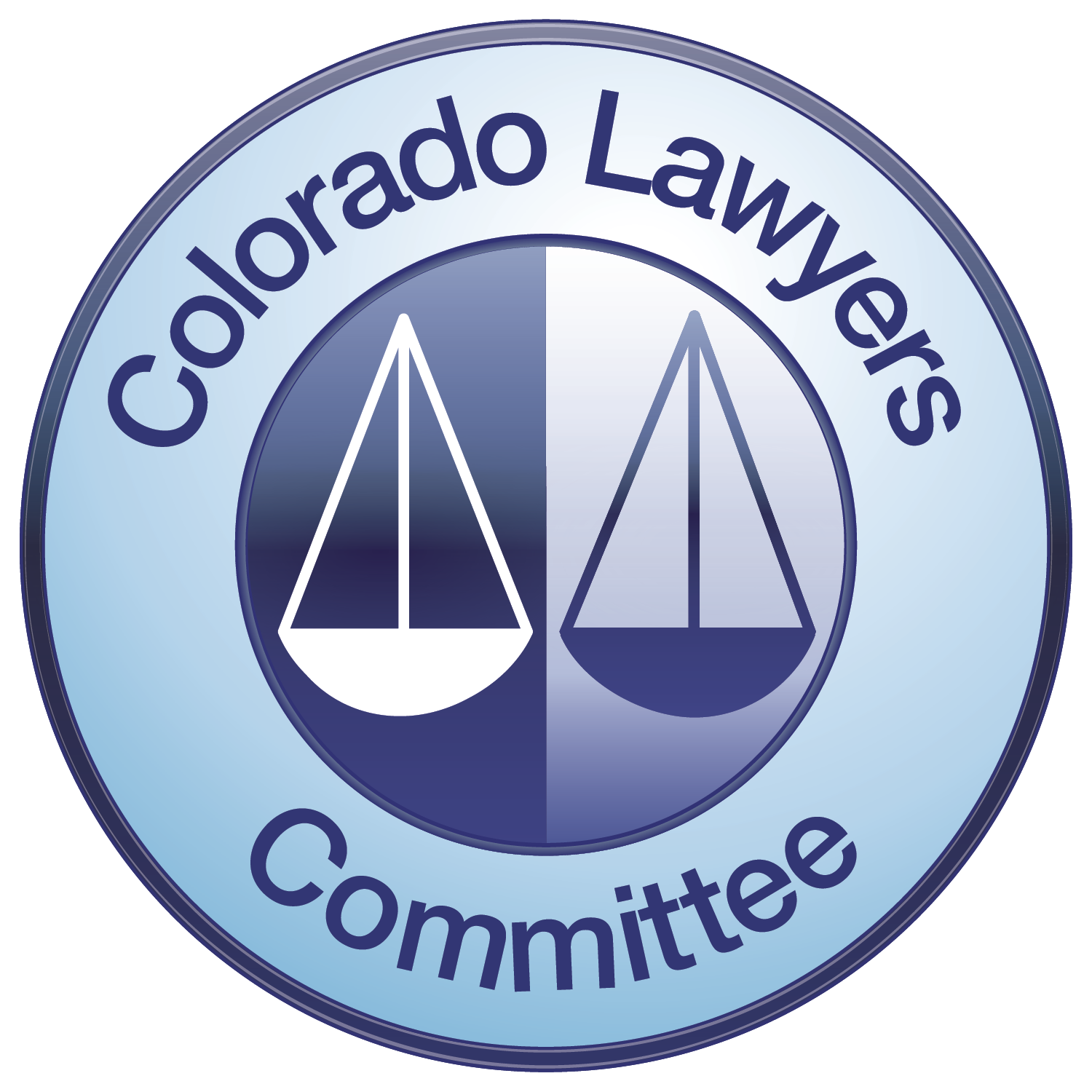CLC Volunteers make a difference in 2018
2018 has been a fantastic year for the Colorado Lawyers Committee! Due to tremendous support from our volunteers and contributors, the Lawyers Committee has been able to respond to pressing systemic issues and to make an important difference in the lives of children and the underprivileged. Last year, more than 920 volunteers donated $2.38 million worth of time on more than 25 projects and enjoyed some significant successes:
Engaging Young Lawyers in Pro Bono Work. The Young Lawyers Division, established in 2015, was created to “empower passionate young lawyers to make a difference for children and the underserved through education, advocacy, and systemic change.” YLD membership has increased to almost 200 members. Under the leadership of the YLD Board, the YLD has directed successful fundraising efforts, taken over leadership of Denver Legal Night, expanded and strengthened the Hate Crimes Education Program, and added energy and enthusiasm to numerous other projects.
Providing Resources for the Underserved. Hundreds of volunteers provided legal information and referrals at four Legal Clinics in Denver and Greeley. To date, more than 32,095 individuals have received free assistance at Denver Legal Night, Greeley Legal Night and Project Homeless Connect.
Helping the Nonprofits That Help Others. In 2017, 79 nonprofits were served by volunteers in both the Nonprofit Working Group, which matches small nonprofits with pro bono lawyers who provide transactional-type assistance, and the Nonprofit Legal Audit Clinic, which matches teams of attorneys with representatives from small nonprofits to assess the nonprofits’ legal health.
Ensuring Voter Access to the Polls. The CLC once again participated in the Just Vote! Election Protection Colorado coalition in sponsoring a Nonpartisan Election Call Center. In 2018, more than 60 Lawyers Committee volunteers received training and responded to questions from over 600 voters around the state related to registration, voting procedures, polling places, mail ballots, and similar issues.
Educating Students About Hate Crimes. Last year, Colorado Lawyers Committee volunteers presented fictional trials to more than 900 students on Colorado’s Hate/Bias-Motivated Crimes Statute, helping students understand the law and encouraging them to speak out against intolerance and injustice. Thanks to a grant from the National Lawyers Committee Stop Hate program, the CLC’s Task Force is developing a national Hate Crimes Program that can be presented in every school in the country!
Advocating for Colorado’s Students. The Anti-Bullying Subcommittee of the Education Task Force has been working with the Gill Foundation and One Colorado to ensure Colorado school districts are complying with House Bill 11-1254, which requires districts to modify their policies to prohibit bullying on the basis of a student’s actual or perceived sexual orientation or gender identity.
Protecting Immigrant Rights. CLC continues its partnership with RMIAN (Rocky Mountain Immigrant Advocacy Network) to sponsor immigration law trainings for non-immigration attorneys who agree to take pro bono detention and asylum cases from RMIAN. The Immigration Task Force has a representative on Denver’s Legal Immigrant Defense Fund and continues to support the San Luis Valley Immigrant Resource Center. In addition, volunteers are exploring the establishment of bond funds to support detainees, a challenge to ICE agents at the courthouse, and advocacy to reverse judicial policies that permit probation officers to communicate with ICE.
Opening of Federal Pro Se Clinic. The CLC helped in the planning of the new Pro Se Legal Clinic at the U.S. District Court in Denver and serves on its Advisory Board. The clinic was recently approved for a two-year pilot program and is being operated by the Colorado Bar Association.
Medicaid Trust Litigation. Federal Medicaid law permits an individual with disabilities who receives Medicaid to establish a Special Interest Trust to safeguard a settlement or inheritance which would otherwise disqualify the recipient from Medicaid. The State of Colorado has adopted a rule (we are only 1 of 2 states that have this rule) that requires the trust to terminate if the individual moves out of state, so the State can be reimbursed for all prior Medicaid payments. The CLC has formed a task force to challenge this rule which we believe is contrary to federal law.
Jail Wait Litigation. This team of volunteers has been in litigation against the State for ten years because of the failure of the mental health hospital in Pueblo to provide timely evaluations and treatment for individuals who are presumed incompetent. Most recently the parties reached a settlement in 2016 which requires the State to evaluate individuals for competency held in the county jails within 24 or 28 days of receipt of the court order, and if found incompetent, to admit the patients and restore to competency within 28 days of receipt of the order for restoration. The litigation team believes the State is in violation of the settlement and recently filed a motion with the Court to Reopen the Settlement Agreement.
Joint ID Task Force: CLC staff continues to meet quarterly with representatives from the Department of Revenue and the ID Collaboration Project to discuss the challenges in obtaining an ID in Colorado. Most recently, as a result of advocacy from this group, the Department of Revenue issued new regulations which will permit a third gender marker (M, F, X) on licenses or ID cards so that individuals who do not identify as male or female can obtain an ID.
Taylor Ranch Litigation. The CLC has been involved in the “Taylor Ranch litigation” for more than 20 years. The case is now in front of the Colorado Court of Appeals for the third time. Oral Arguments were held on September 5th and dozens of land owners from the San Louis Valley were in attendance.
Foster Care Challenge. The Foster Care Subcommittee of the Children’s Task Force is collaborating with Children’s Rights, a New York advocacy organization, to explore litigation against the State for failure to provide sufficient appropriate foster care placements.
With your help, we expect to continue and expand these efforts. We look forward to another successful year in 2019!
